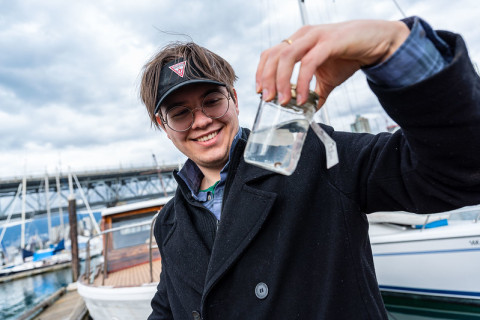Completed
In 2014, UBC’s Earth, Ocean and Atmospheric Sciences and Physics and Astronomy departments received generous funding from the Harris family to pilot paired teaching as a follow-up to the CWSEI (see above). During the project, 27 instructors across these two departments taught 18 courses to over 2,500 students in the pilot program, and research was disseminated through several scholarly publications.
